“The great thing in this world is not so much where we are, but in what direction we are going,” said Supreme Court Justice Oliver Wendell Holmes Jr. LL.B. 1866. His emphasis on moving forward fits the spirit of 2017, the 200th anniversary of Harvard Law School, as it prepares students to enter a profession in the thick of upheaval, innovation, rethinking and deepening purpose. What possible futures await them? The Bulletin asked an eclectic group of forward thinkers to take a longer view and imagine what decades from now might hold for HLS and its graduates. Here are some of their thoughts.
No Mere Serfs: HLS Should Champion Alternatives to Digital Feudalism
As the world grows ever more complex, globalized, and dominated by technology, the trend for contractual arrangements to displace tort rights and government regulation will only accelerate. Already, terms of service, click-through agreements that no one reads, and the like are being used to govern relationships between powerful companies and individual consumers, and to take most disputes out of the realm of courts and traditional litigation. Over the next few decades, virtual services and goods will become a bigger and bigger piece of the economy, and virtual reality, augmented reality, and mixed reality platforms will become as important as, if not more important than, the internet services of today in the lives of most consumers. Powerful companies will dictate the terms of their walled-garden economies in complex contracts that individual consumers will have no power to deviate from (and perhaps no recourse to the courts either), and they may be enforced in software code through “smart contracts” that leave no room for human interpretation. The notion that you will have access to many of your most precious electronic possessions and memories at the pleasure of the owners of these virtual platforms—who can change the terms of your contractual relationship at will—can make the most terrifying visions of dystopian authors seem benign. A future in which most of us are mere serfs for the great digital feudal lords is only too likely to come true.
Since most of HLS’s grads will be working for the owners of these platforms, I hope Harvard Law School will push against this trend. I wish to see the law school become part of the forefront of research and resistance against digital feudalism and give its graduates the tools to become advocates and regulators for our freedom. As private companies become the unchallenged legislators for virtual platforms that will play larger and larger roles in our lives, the future of democracy may well depend on new legal theories and practices that preserve our privacy and autonomy against these new threats.
Ken Liu ’04 is an award-winning science fiction writer whose recent work includes “The Paper Menagerie and Other Stories,” two novels, and translations of best-selling Chinese science fiction into English. In addition, he is a litigation consultant in intellectual property cases.
Lead with the Ideals of the Profession
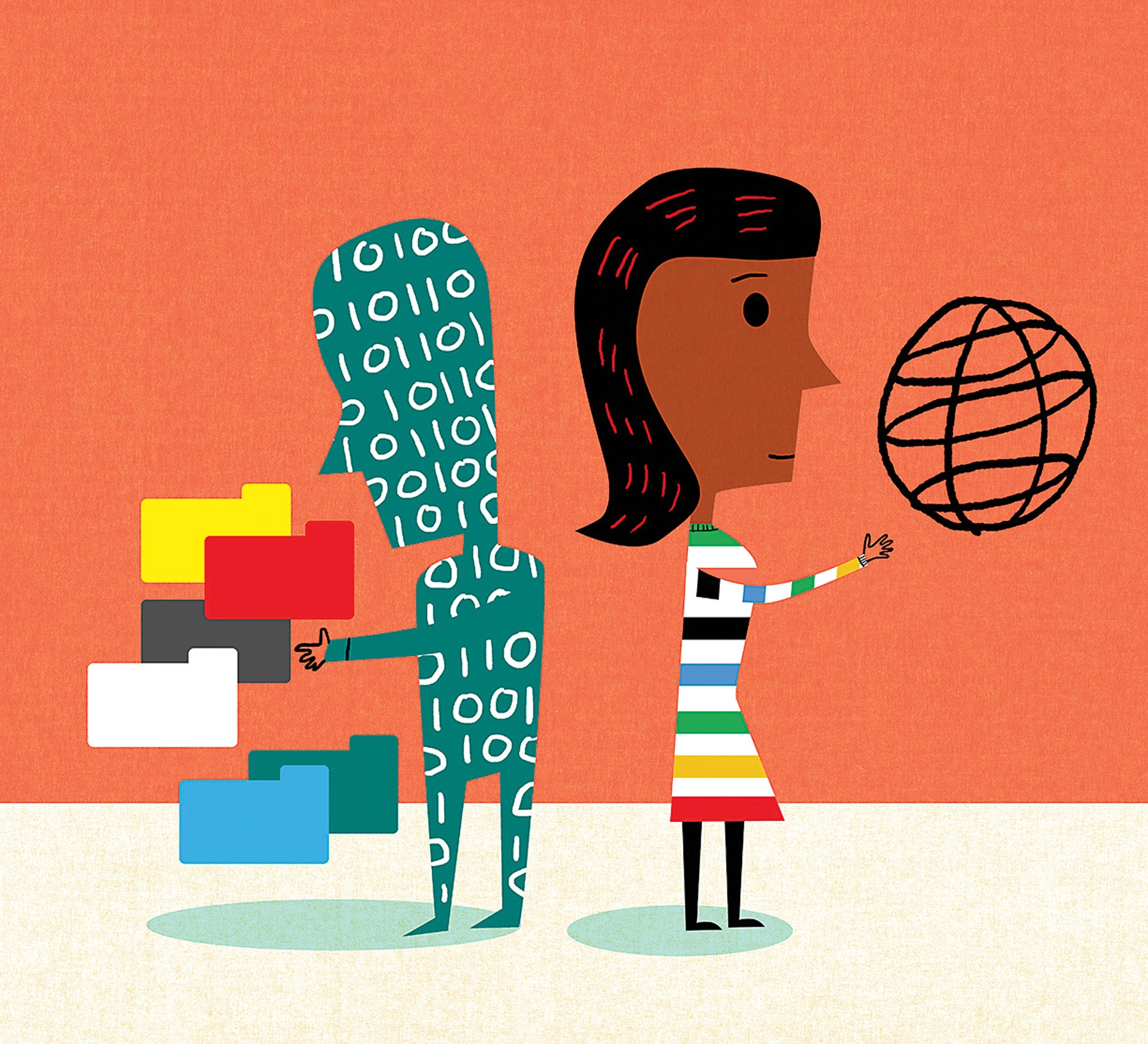
The profession is changing. Optimism: The prospect of AI doing many of the jobs that first-year associates used to do—like discovery—means that law school graduates can be pushed to those areas most in need of what Professor David Wilkins calls “wise counsel.” The toughest and most interesting problems will remain for lawyers to take up. Pessimism: The drift of lawyering away from the function of wise counsel and more toward simply taking a business decision arrived at by others and making it so. Perhaps we can take the ideals of the profession at their most aspirational and lead the way for adjacent professions to see that they serve not only their clients, but the public interest as well. Data scientists and software developers are gatekeepers to levers of power the way lawyers have been, and should see their roles as capaciously as lawyers traditionally have.
Professor Jonathan Zittrain ’95 is vice dean for library and information resources, and faculty director of the Berkman Klein Center for Internet & Society.
Make HLS a Bigger Tent
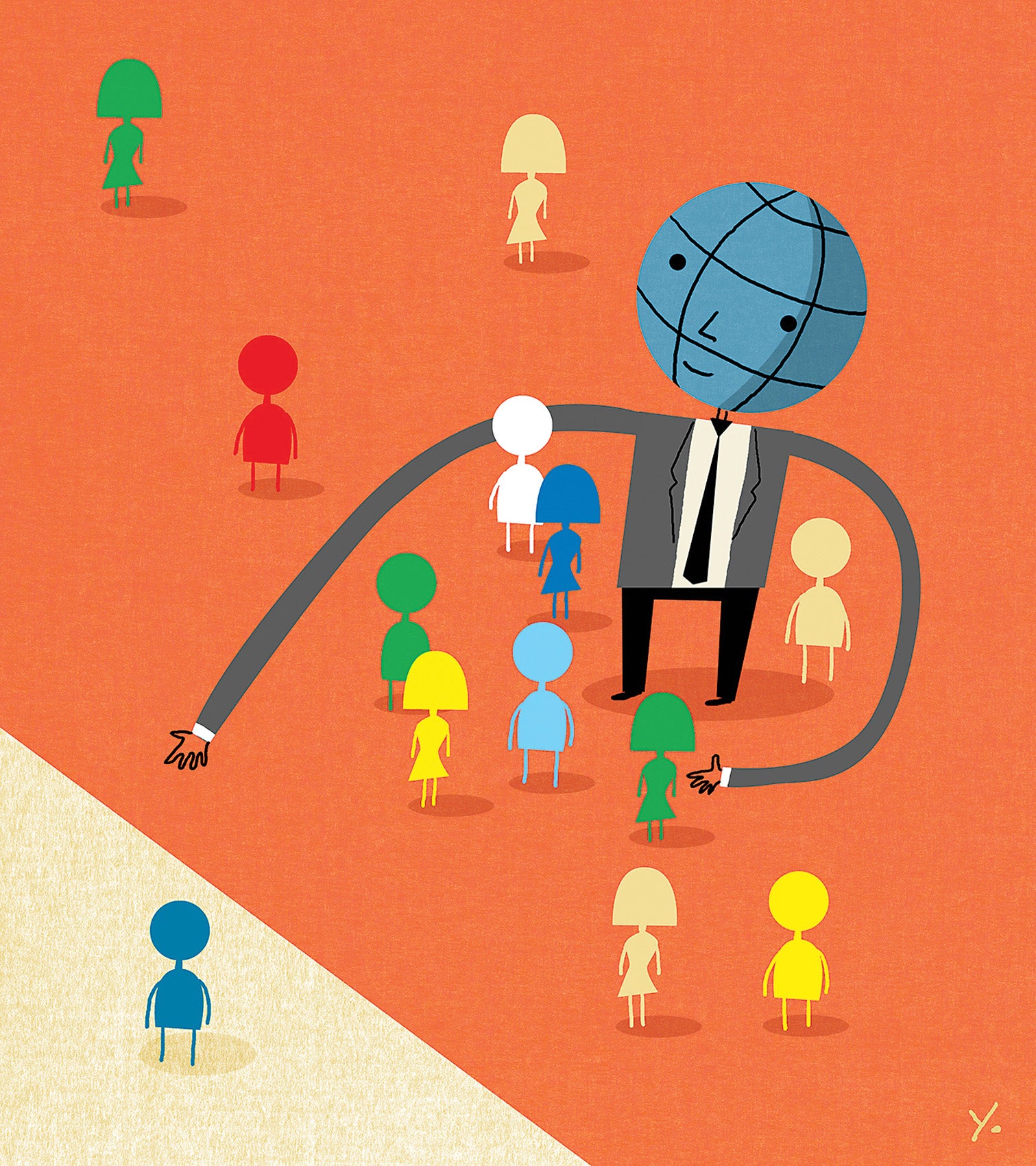
Given that Harvard Law School is the birthplace of clinical legal education, and as someone who has benefited greatly from the school’s clinical programs, I would love to see participation in a clinical program made a graduation requirement—both for the tremendous benefit that this experience can add to one’s legal education and because I think it’s important that students use the skills and resources they receive here on behalf of the broader community. And as one of the few indigenous students at Harvard Law School, given how many indigenous communities are located in remote areas, I would like to see this institution find new ways to attract and encourage applicants from remote communities. So, when I imagine Harvard Law School 25 years from now, say, I see more indigenous students, and more students from remote and rural communities, making up the student body. And I see more students from the law school out in the community, using their legal education to help others.
Julian SpearChief-Morris ’18 is head of the Harvard Legal Aid Bureau, the nation’s oldest student legal services organization (founded in 1913), which provides free civil legal services to low-income clients.
Strike a New Balance Between Disruption and Fidelity
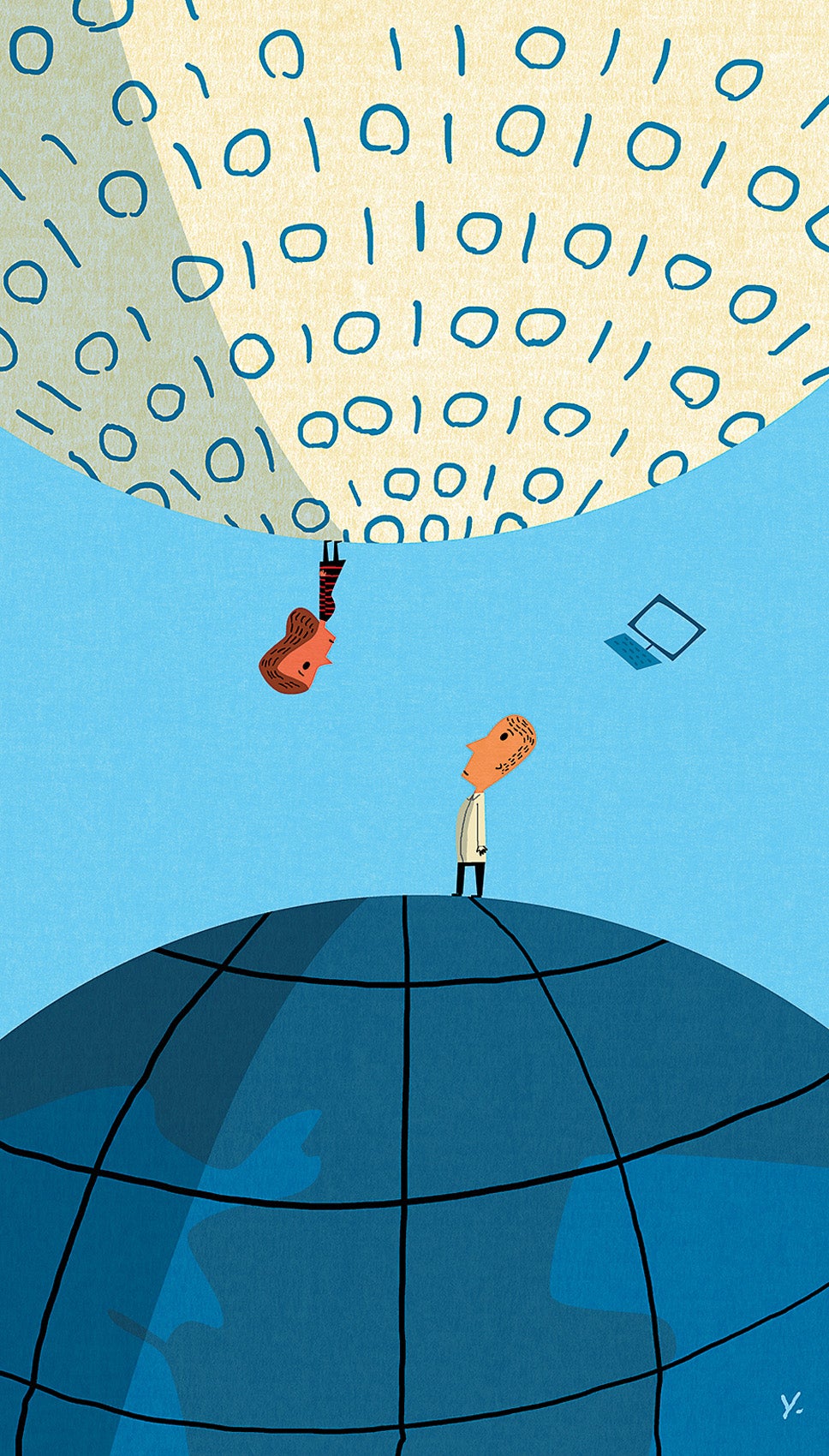
There’s no question that the pace of change in the legal profession has been accelerating dramatically. To see why, one need only look at the forces that are transforming the rest of our lives: globalization of economic activity; the exponential rise in the speed and sophistication of information technologies; and the “blurring” of traditional boundaries between what we once thought of as separate fields, such as “public” and “private,” or, even more important for these purposes, “law” and “business.”
Lawyers in fields as diverse as mergers and acquisitions, family law, and human rights increasingly find themselves dealing with clients and issues that cross national boundaries. To solve these problems, lawyers are turning to new technologies and processes such as artificial intelligence, data analytics, and even cryptocurrencies and the underlying blockchain platform. All of these changes are sure to accelerate in the coming years as clients demand that lawyers address complex problems at the intersection of law, business, strategy, sustainability and the public good.
To tackle these issues, law schools will need to move beyond teaching students necessary “core” legal competencies such as critical thinking and a thorough grounding in law and legal institutions to also provide them with an introduction to the “complementary competencies”—e.g., financial literacy, the ability to read and interpret data, cross-cultural fluency, teamwork and team leadership skills—that they will need to be “wise counselors” and “effective leaders” in this new global age of more for less. The goal is not to “disrupt” everything. Instead, we must strike a new balance between equipping our students to respond to the powerful forces changing our world and reinforcing the fundamental values of professionalism and fidelity to truth and the rule of law that are—and must always be—at the core of what it means to be a lawyer.
David Wilkins ’80 is the Lester Kissel Professor of Law and faculty director of the Center on the Legal Profession at Harvard Law School.
Train Lawyers Sans Frontières
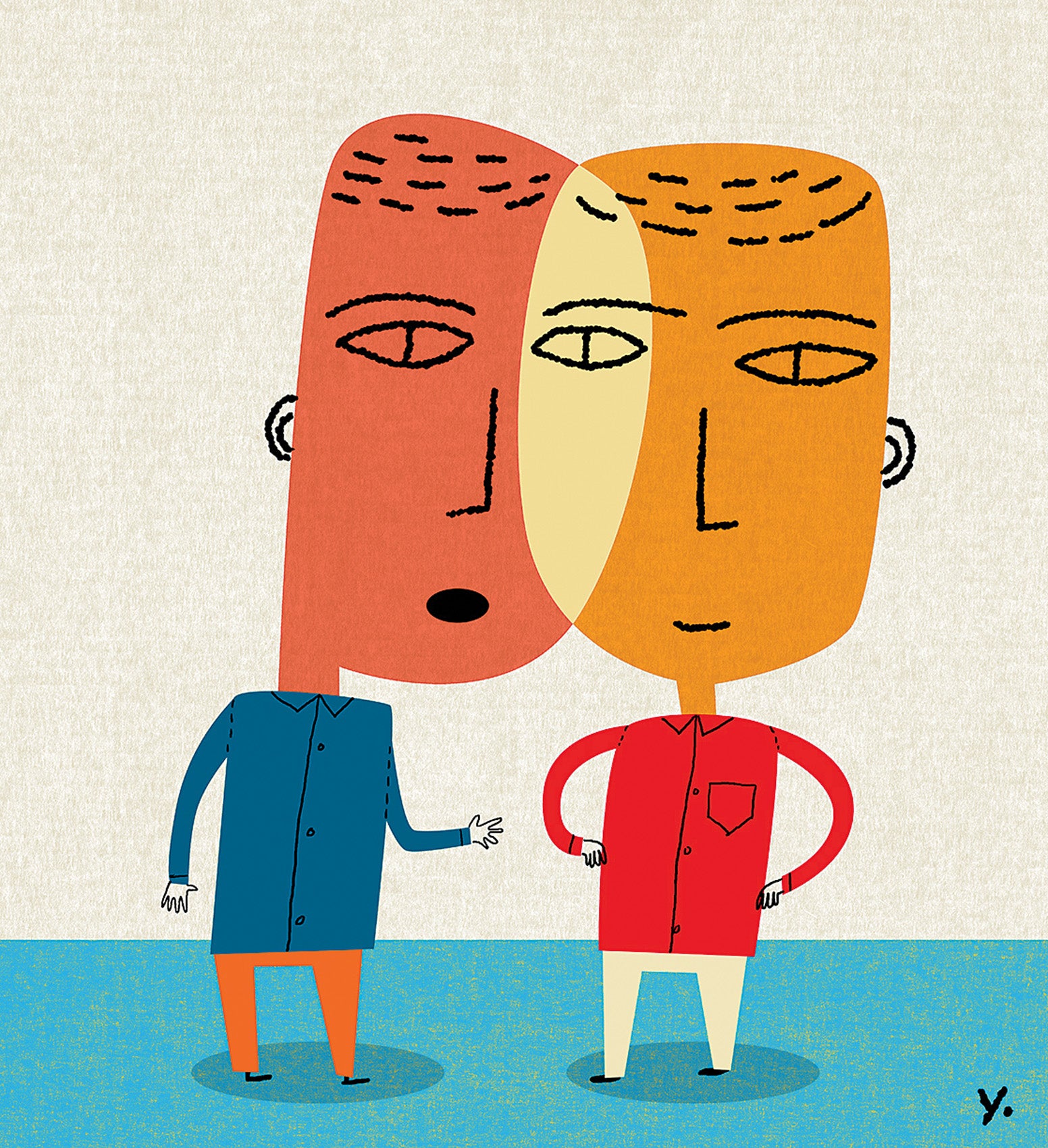
I originally founded LawWithoutWalls to break down barriers between lawyers and clients, as well as between legal training and practice, and to shift our focus from what lawyers do to how we work. Its mission is not only to create innovations that solve problems at the intersection of law, business, and technology but also to equip future and current lawyers with new skills that cannot be taught in the traditional classroom format and that are essential for 21st-century lawyering.
My dream for our future is that [within a few decades] law schools will be training lawyers to be 1) creative problem-solvers who understand their clients’ needs and innovate solutions with empathy and ingenuity; 2) cross-competent leaders with a high-risk tolerance and ability to team across countries, cultures, and disciplines; and 3) business-minded and business-focused industry experts readily able to harness technology, social media, collaboration, and communication skills to meet the needs of tomorrow.
Michele DeStefano ’02 is a professor of law at the University of Miami, guest faculty in Harvard Law School’s Executive Education Program and the founder of LawWithoutWalls. She is author of “Legal Upheaval: A Guide to Collaboration, Creativity, and Innovation in Law,” forthcoming from ABA Press.
Anticipate Evolutions and Revolutions in the World of Law
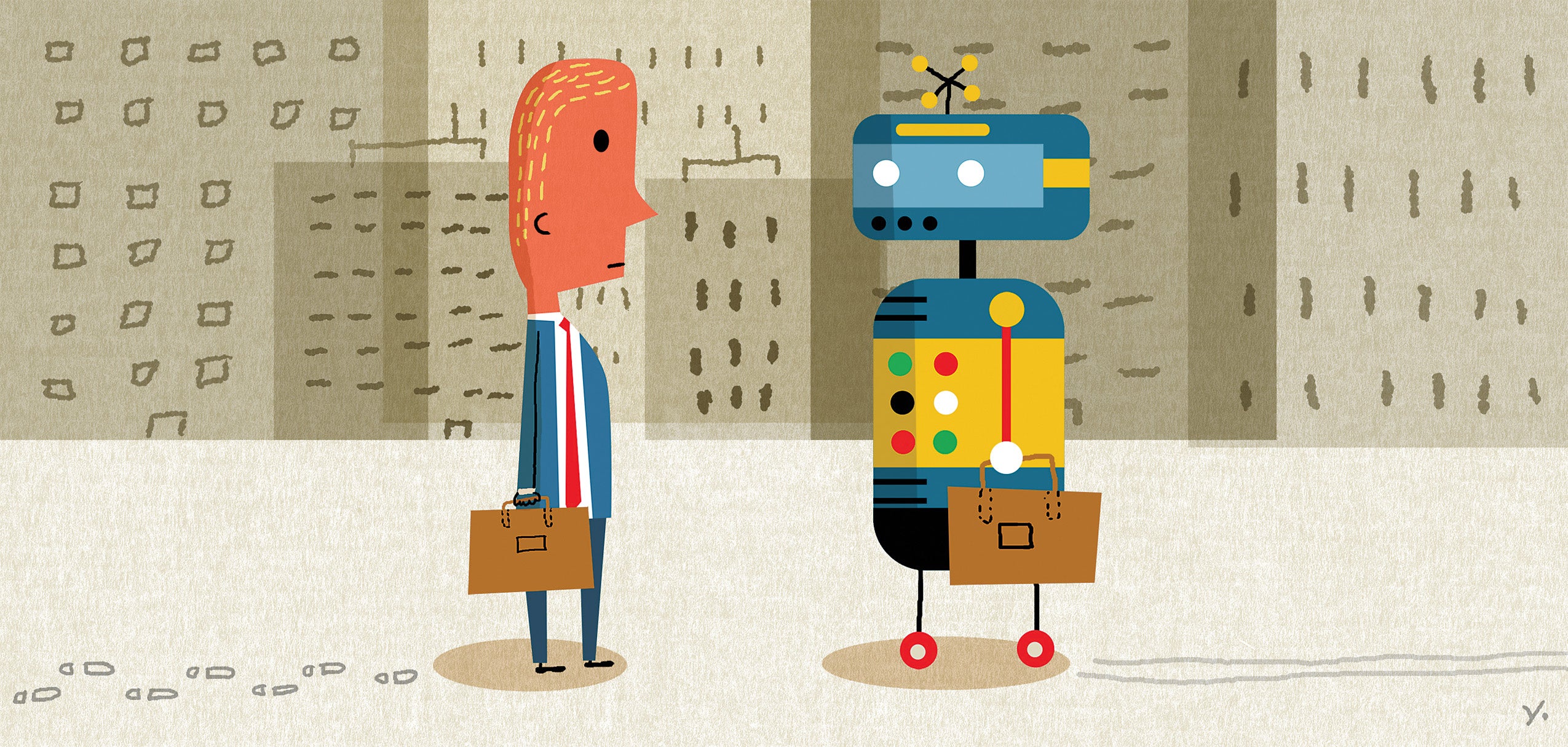
We live in a time of exponential change. The speed of technological shifts suggests that changes are likely to come our way across multiple dimensions that will affect our laws, the ways they are enforced, who has rights and how the legal profession is practiced.
With all predictions, it is easier to see potential directions we are likely to head than to suggest the exact timing. That said, technological shifts over the next two decades will include a much greater role for robotics (e.g., self-driving vehicles are likely to come to market by 2025 if not before); expansion of the digital ecosystem (with close to 7 billion people and more than 30 billion devices connected to the internet in 2025); the rise in use of and disputes over data; and the expansion of genomics and medtech (to allow for personalized medicine and human augmentation).
Some of the challenges raised by these new technologies will be familiar—with issues of access and privacy at the center—but others will impact not only our current systems of rights but even our venue and approach for legal adjudication.
Dimensions along which change may come include:
New uses of data. Legal systems have always had to adjust to new technologies. As we enter an era with more than 16 ZB of data produced each year, we can expect increasing disputes in different jurisdictions over who owns data, who can access it and how it can be used. Already at least one U.S. court has allowed pacemaker data to be used against a defendant in an arson trial, and a suspected murderer was asked to pass over data from his Amazon Echo.
New roles for robots and algorithms. We prefer to think that judicial adjudication depends on unique human discernment and nuanced skill; however, given that RPA (robotic process automation) already assists human decision-making in transportation management, accounting, and stock portfolio selection, the legal system, too, is likely to experience some of this technological shift. Currently, U.S. courts and corrections departments are experimenting with algorithms to determine a defendant’s risk to inform decisions about bail, sentencing, and parole.
The jury is still out on these approaches, but we can predict that algorithms and RPA will play some augmentation/recommendation role in the future—even if it is too early to describe the exact role.
New forums for dispute resolution and ways of practicing law. Today we live in a world with both physical and virtual spaces. In retail, we see hybrid physical/virtual models emerging (e.g., Amazon Go). As more disputes become global, more venue options will arise, including virtual sites for dispute resolution. The Virtual Courthouse now “hears” mediations and arbitrations, and USAID has funded virtual trials in Colombia. The practice of law, too, will expand in virtual ways. The American Bar Association already has an e-lawyering task force and minimum requirements for law firms delivering legal service online; we can expect these online options to grow.
New crimes. Cybercrimes are exploding, and attempts at enforcement are often less than successful. Expect continued evolution of laws and enforcement approaches to cyberbullying, online predators, and polihacking, with more online crimes likely to emerge. Over the coming decades, the virtual world will begin to feel even more real and compelling—in fact, already a married woman divorced her husband for marrying another woman in the virtual world (yes, not only do online chatting and cheating exist but also online private detectives).
These are just a few of the potential changes ahead. Some shifts are natural evolutions, but some will be real revolutions as we enter a period when machines and algorithms will play greater roles in our lives and likely in our legal systems.
Alison Sander J.D./M.B.A. ’86 serves as director of the Center for Sensing and Mining the Future, The Boston Consulting Group.
